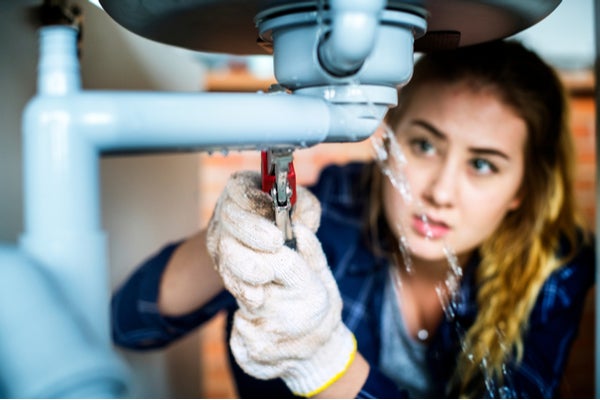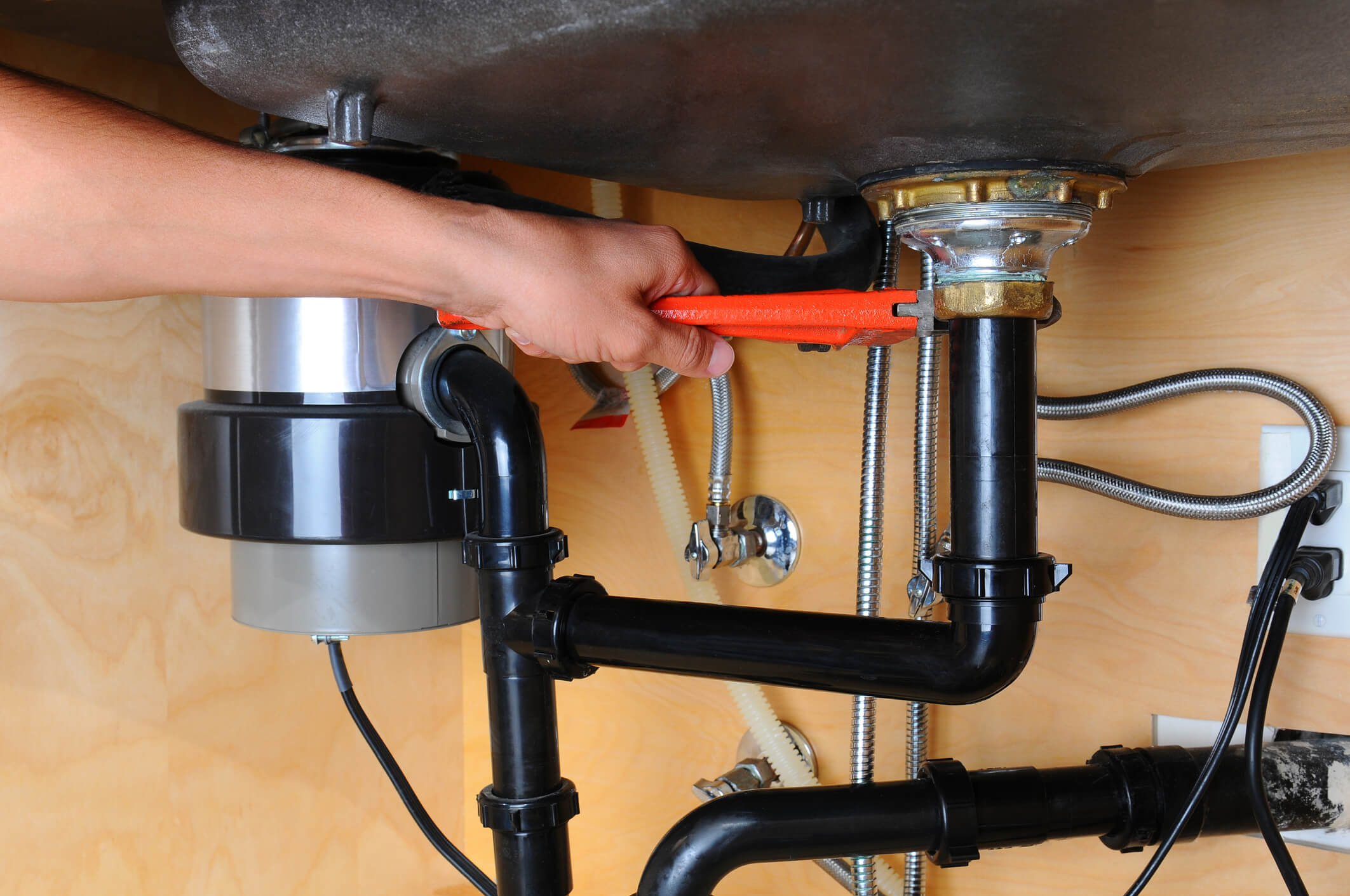We have come across this great article pertaining to Leak Detection and Repair Without Destroying Your Home listed below on the net and accepted it made good sense to share it with you over here.

The secret to long lasting home appliances, unsurprisingly, is proper upkeep. There's no set regulation that can ensure your plumbing appliances a long wear, yet you can prevent unneeded damages as well as repair work by avoiding negative plumbing behaviors.
You should stop doing these 6 things else you'll keep calling your plumber over for minor faults.
Flushing every little thing
Yes, your toilet drainpipe brings about the sewage systems, however that doesn't mean you need to dispose just anything away. Lots of 'flushable' materials are really excellent clog beginners, for example floss. Asides maintaining apparent non-flushable products like cords and plastics out of your bathroom, you must additionally avoid flushing cotton buds, menstruation products, wipes, daipers and prophylactics down the toilet drainpipe.
Putting oil in the sink
We know appropriately getting rid of grease after a hearty meal is a pain. But merely putting it down the tubes can do long-term harm to your pipelines. "The fat and grease can block your drain terribly adequate to force you to call a plumber," describes Dawson. "Plumbing works best when it's well cared for-- not abused with grease."
Utilizing way too much drain cleaner
Using a drain cleaner more than one or two times a month is an indicator that something major is taking place within your pipelines. Now, instead of dealing with the main problem, you go for a quick fix; a fizzy drainpipe cleaner. Rightfully, a drain cleaner will deal with the clog, however at what price?
The chemicals in a drainpipe cleaner can speed up the corrosion of your pipes. Add that to whatever underlying trouble is causing the clog as well as you might need to a significant trouble on your hands.
If you experience too many clogs, call your emergency plumber instead of using a drain cleaner.
Not rinsing dishes prior to packing them right into the dishwashing machine
it's called a dishwasher, however throwing in dishes, pots, as well as frying pans covered in large food particles can really create some serious damage to the home appliance, bring about long-term issues down the line. "Home owners may have to get their dishwashing machine fixed more often if they don't rinse their dishes before filling, or a minimum of get rid of bigger food pieces," describes Audrey Monell, owner of Forrest Anderson Plumbing and also Air Conditioner in Glendale, Arizona. "Food that obtains stuck on meals triggers the dishwasher to work harder, which can wear down parts quicker, causing problems."
DIYing whatever
With plumbing, a stitch in time truly does conserve 9. You can protect against a fullblown plumbing emergency by calling your plumber at the right time.
You may have learnt a few plumbing hacks from your father, but you should understand where to fix a limit as well as call a professional. For instance, you may be able to fix an obstruction on your own, however you shouldn't try to alter a pipeline. You can inequality pipelines or overtighten a bolt, causing even more injury as well as damage than you assumed. Calling a plumber is a risk-free and inexpensive choice.
Not altering your dish washer pipes
One easy means to guarantee that you use your dishwashing machine for several years is to change the pipe at the very least as soon as in five years. This likewise looks for washing machine tubes.
Gradually, food fragments, soap and also grease can form obstructions within your pipelines. Changing them in a timely manner will prevent any kind of presure build up that can damage the inner functions of your dishwasher or washing machine.
An enhanced steel braided pipe does a great job of prolonging your machine's usage time.
No winter months preventative measures
Severe weather are bad for your pipelines, specifically if they're made from steel. You must insulate your exposed pipelines, and your water container, even if you have a water heater. You should likewise turn off your yard hose shutoff and any other outside water networks. These channels are electrical outlets for cold; you pipelines can start to ice up from outdoors if you do not.
How Hard Water Damages Your Plumbing and Appliances
Hard water is no stranger to most households across America. This silent invader affects 85% of homes in the United States every day, wreaking havoc on pipes, plumbing fixtures, and water-using appliances.
Should you become a victim of hard water, you must understand exactly what it is and how it affects your plumbing and appliances. This will help you determine the correct measures to put in place to fix or prevent any problems that may arise.
First off, what exactly is “hard” water?
In short, “hard water” is used to describe water that contains relatively high amounts of dissolved minerals, primarily calcium and magnesium, and a host of trace metals. When rainwater falls from the sky (usually in a pure form), it absorbs the hardness minerals from rocks and soil, which changes it from soft to hard water.
What about my plumbing and appliances?
Mineral deposits from hard water can cause buildup on tubs, shower, sinks, faucets. But that’s only a small scratch of the surface. Those minerals can gradually build up inside pipes, fixtures, water heaters, washing machines, and dishwashers. Once they accumulate in those areas, they can clog pipes and create major problems throughout your plumbing system, from reduced water flow to increased pressure on pipes and fixtures.
This limescale buildup might affect some appliances, causing them to operate less efficiently and wear down faster. And the result? Higher energy bills, more (costly) plumbing replacements and repairs, and damaged appliances.
Keep in mind that certain types of plumbing are more susceptible to clogging than others. Copper, PVC, and PEX pipes are more resistant to hard water buildup and corrosion, but they can still get clogged or completely blocked by scale deposits.
How do I know if my water is hard?
White limescale buildup on plumbing fixtures (or any of the other signs mentioned above) is usually a good sign that your water is hard. If you suspect that you have hard water, you can simply shake up a small amount of dish soap and water in a closed container. If the mixture doesn’t create a lot of suds, you probably have hard water.
The most precise method, however, is to test your water with a DIY test kit (sold online or at local home centers or hardware stores) or send a water sample from your tap to a local lab to be tested. Be sure that you understand the nature of the test, the water condition being measured, and the significance of the test results.
Another way to obtain an estimate of water hardness is to check your annual water quality report to see if your water provider has reported any instance(s) of water hardness in your water supply.
https://www.springwellwater.com/how-hard-water-damages-your-plumbing-and-appliances/

We had been brought to that report on Can Hard Water Ruin Your Appliances? through an acquaintance on our other website. Sharing is good. Helping others is fun. We truly appreciate reading our article about Ways to Make Your Pipes Last Longer.
Go Services
Comments on “The Six Most Common Risks To The Home Plumbing Fixtures”